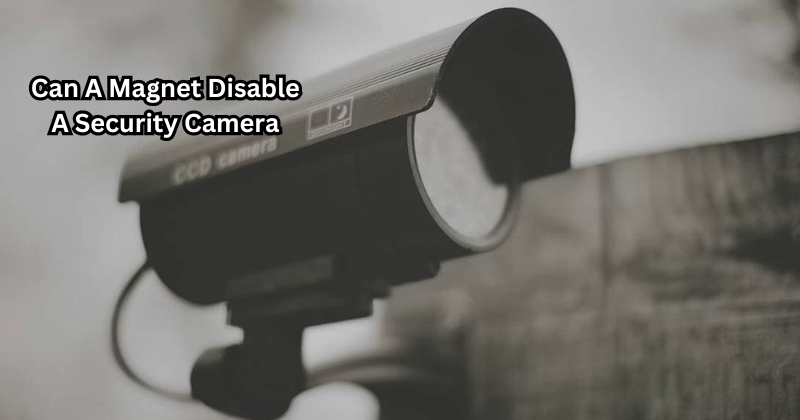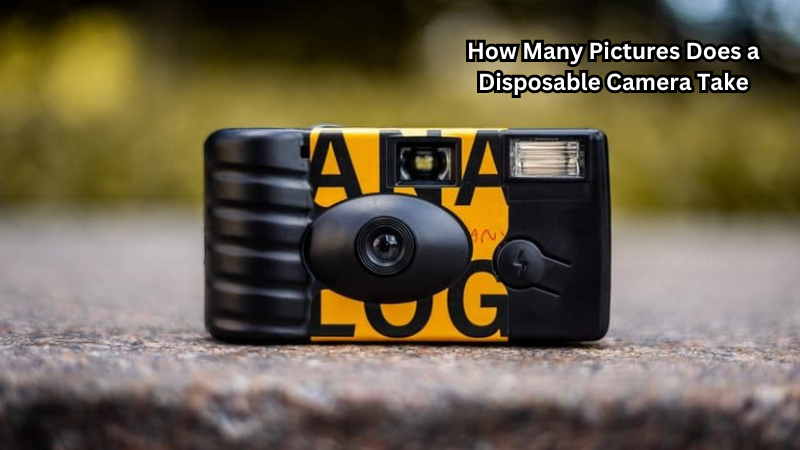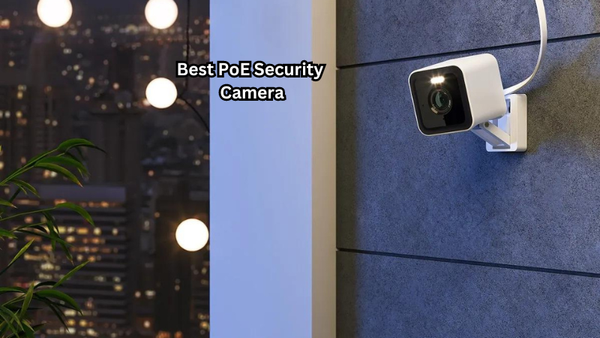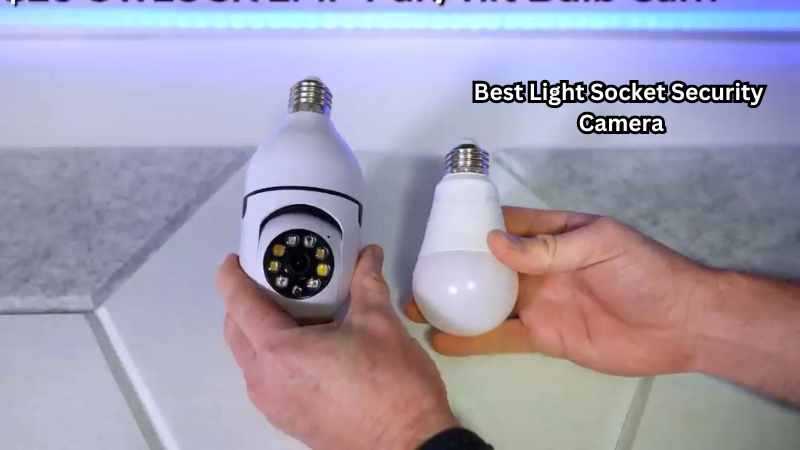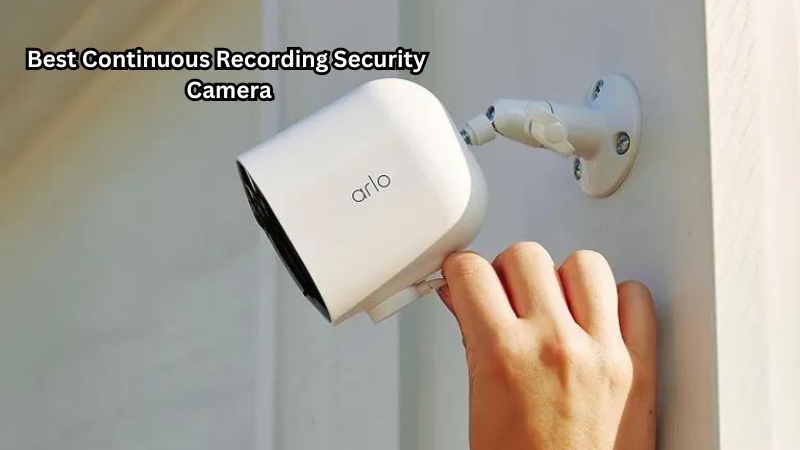Concerns about security camera vulnerability to external interference, like magnets, have sparked debates in surveillance technology. The question of whether a magnet can disable a security camera is not merely theoretical; it delves into the technical aspects of camera systems and the potential risks posed by external magnetic fields.
Understanding the inner workings of security cameras, their susceptibility to magnetic interference, and the implications for surveillance integrity is crucial in assessing the effectiveness of security measures.
This introduction seeks to explore the impact of magnets on security cameras, offering insights into the complexities of safeguarding surveillance systems against external disruptions.
How Do Security Cameras Work?
To understand if a magnet can disable a security camera, we must first comprehend how these cameras operate.
Security cameras are designed with sensitive electronic components that capture and transmit images or videos to a designated monitoring system. These cameras rely on external power sources, which enable them to function continuously.
The core components of a security camera include the lens, image sensor, processor, and transmitter. The lens captures light rays from the environment and focuses them onto the image sensor.
The image sensor converts the light into electrical signals that are processed by the internal chip (processor) before being transmitted to the monitoring device.
How Magnets Work
At its core, a magnet is an object with a magnetic field that can attract or repel certain materials. Magnets are widely present in our daily lives, from refrigerator magnets to more powerful neodymium magnets used for industrial purposes.
Magnets generate magnetic fields through the alignment of their microscopic domains (atoms) in the same direction. When two magnets come into close proximity, their magnetic fields interact, causing either attraction or repulsion depending on the polarity of the magnets.
What Makes Security Cameras Susceptible to Magnetic Interference?
As with any electronic device, security cameras are susceptible to magnetic interference due to their reliance on electrical signals. Strong magnetic fields can disrupt the flow of electrical signals within the camera, leading to distorted or disrupted images.
The degree of susceptibility varies depending on the camera's quality and design. Cheaper or older models may be more vulnerable to magnetic interference due to inadequate shielding or less advanced components.
Higher quality and newer security cameras are typically designed with better protection against external disruptions. Modern technology has also allowed for the development of anti-magnetic coatings that can reduce a camera's sensitivity to magnetic fields.
Types of Security Cameras and Their Vulnerabilities to Magnets
The susceptibility of security cameras to magnetic interference also depends on the type of camera. There are various types of security cameras available, each with its own vulnerabilities to magnetic disruptions.
- Analog CCTV Cameras: These traditional cameras use coaxial cables to transmit video signals and are generally less susceptible to magnetic interference compared to newer IP cameras.
- IP Cameras: Internet Protocol (IP) cameras transmit data over a network, making them more vulnerable to external disruptions like magnets that can interfere with their connection.
- Wireless Cameras: As the name suggests, these cameras use wireless technology for transmission, making them susceptible to magnetic fields that can disrupt their wireless signals.
These vulnerabilities highlight the need for proper placement and protection of security cameras to minimize the risk of external interference. Placement near strong magnetic sources, like power lines or electrical equipment, should be avoided to prevent disruptions.
Can A Magnet Disable A Security Camera?
The short answer is yes; a magnet can disable a security camera under certain circumstances. However, it is not as simple as placing a magnet near the camera and rendering it useless.
Security cameras are designed to be resilient to external interference, including magnetic fields. The electronic components within the camera, such as the image sensor and processor, are shielded with materials that help minimize their susceptibility to magnetic disruption.
Additionally, most security cameras are powered by low-voltage direct current (DC) sources, which are less affected by magnets compared to alternating current (AC) sources.
Potential Risks of Using Magnets Near Security Cameras
While it may be possible to disable a security camera using a strong enough magnet in close proximity, it is not advisable to do so. Deliberately interfering with a security camera can have various consequences, including:
- Damage to the Camera: Strong magnetic fields can damage the electronic components within the camera, rendering it inoperable.
- Compromised Security: Disabling a security camera can leave an area vulnerable to unauthorized access or criminal activities, compromising overall security.
- Legal Ramifications: Tampering with surveillance equipment is a serious offense and can result in legal consequences.
- False Alarms: Magnetic interference can cause false alarms, leading to unnecessary disruptions and potential system malfunctions.
These potential risks highlight the importance of understanding the effects of magnets on security cameras and taking necessary precautions to protect surveillance systems from external interference.
Protecting Security Cameras Against Magnetic Interference
To safeguard security cameras against magnetic interference, it is crucial to choose high-quality and well-designed cameras that offer adequate protection against external disruptions.
Additionally, proper installation and maintenance of the camera's power source can also help minimize the risks posed by magnets.
Regularly checking for any signs of damage or malfunctions in the camera system is also recommended as a preventative measure.
In case of any potential issues, consult a professional technician for assistance. Moreover, avoiding unnecessary use of magnets near security cameras is also crucial in maintaining the integrity of the surveillance system.
Is It Illegal to Block Neighbors' Security Cameras?
Intentionally blocking or interfering with a neighbor's security camera is considered illegal and can lead to legal consequences.
However, the laws regarding this may vary depending on the jurisdiction. It is important to respect your neighbors' privacy and not interfere with their surveillance systems without their consent.
Additionally, homeowners should also be cautious when installing their own security cameras to ensure they do not inadvertently block or interfere with their neighbors' cameras. Proper communication and cooperation between neighbors can help avoid any potential conflicts regarding security cameras.
FAQs
Can a magnet disable security cameras effectively?
In most cases, a magnet cannot effectively disable security cameras, especially modern CCTV camera systems. Security cameras are designed to withstand various environmental factors, and their critical components, such as the digital video recorder and camera lens, are typically shielded from magnetic interference.
How can I protect security cameras from potential magnetic interference?
To protect security cameras from potential magnetic interference, ensure that they are properly installed and housed in tamper-proof enclosures. Additionally, using outdoor security cameras designed to withstand harsh conditions can further protect the security system from any form of interference, including magnets.
Do magnetic sensors on security systems protect against magnetic interference?
Magnetic sensors in security systems are usually designed to detect door or window openings rather than protect security cameras from magnetic interference. However, comprehensive security systems often include other protective measures and robust designs to prevent tampering and disabling.
Can a magnet affect a neighbor's security cameras?
It is unlikely that a magnet would have a significant effect on a neighbor's security cameras. Modern outdoor security cameras and CCTV camera systems are designed to be resistant to such interference. Additionally, tampering with a neighbor's security system is illegal and unethical. It’s important to respect others' security measures and privacy.
Conclusion
In conclusion, the question of whether a magnet can disable a security camera raises awareness about the potential vulnerabilities in surveillance systems.
While magnets have the ability to interfere with electronic devices, including security cameras, the extent of their impact varies depending on factors such as the camera's design, shielding, and resilience to external influences.
Understanding the risks posed by magnetic interference is crucial for maintaining the integrity and effectiveness of security measures.
By implementing robust security protocols, regular maintenance checks, and staying informed about emerging threats, individuals and organizations can better safeguard their surveillance infrastructure against possible disruptions, ensuring continuous protection and peace of mind.
